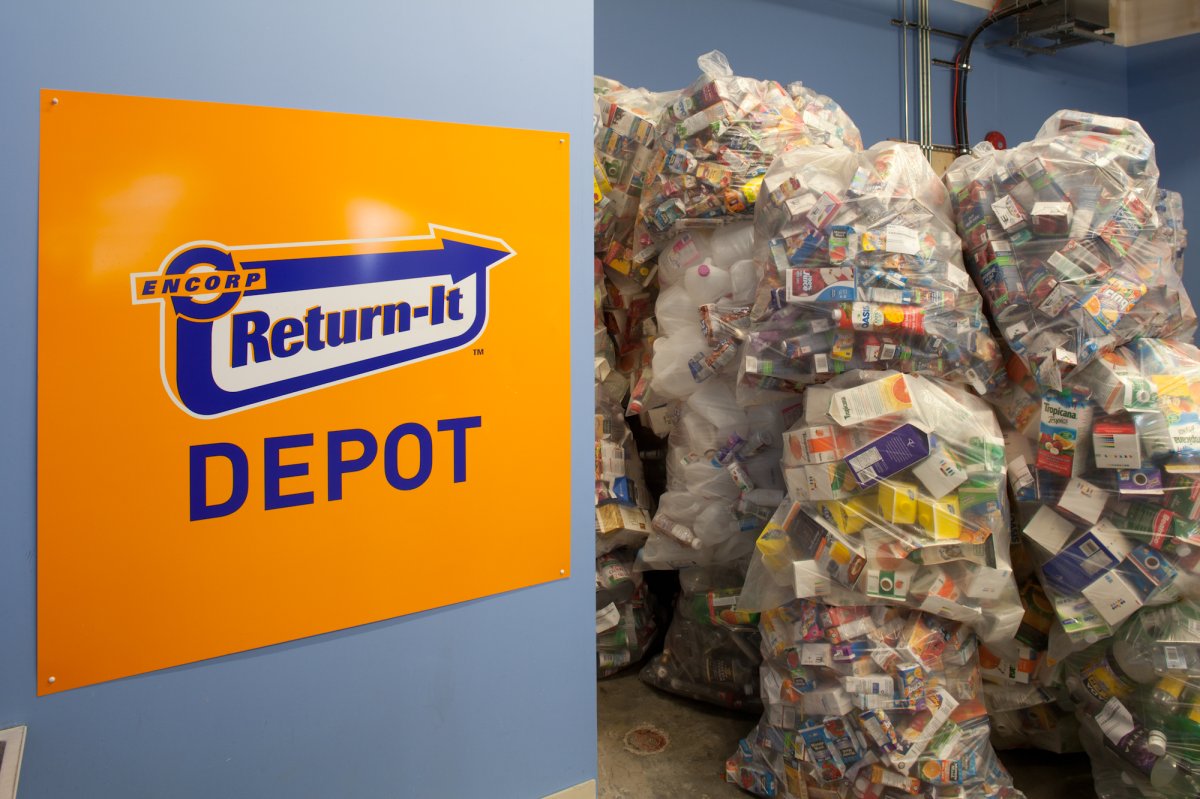British Columbia continues to have one of the highest recycling rates for beverage containers in North America, with over one billion containers kept out of landfills last year.

It’s a great achievement in helping to reduce Canada’s waste footprint and support environmental conservation. In 2016, over 92,000 tonnes of beverage containers were collected and recycled through Encorp Pacific (Canada)’s Return-It program helping to prevent 101.9 thousand tonnes of CO2 emissions from being released into the air — that’s equivalent to taking 29,000 cars off B.C. roads annually or the energy needed to power 42,000 homes for a year.
Ready-to-drink beverage containers that make their way to landfills can cause significant negative impact to our air, land and water quality. Recycling is one of the best ways to help reduce the amount of greenhouse gases that get emitted into the atmosphere from landfills, as well as prevent harmful chemicals from leaching into our rivers and lakes through landfill stormwater run-off.
Recycling also helps mitigate the impact of climate change by preventing deforestation needed for raw materials. It requires tremendous amount of energy and resources to make new beverage containers. According to David Suzuki Foundation, it takes close to 17 million barrels of oil to produce 30 million water bottles — and that’s just accounting for water bottles alone.
Encorp Pacific (Canada), the not-for-profit stewardship organization responsible for the proper recycling of drink containers, has been managing the collecting and conversion of empties into reusable materials since 1994.

Get daily National news
The success of its Return-It beverage recycling program is due in part to a strong collaboration between consumers, retailers and manufacturers, who work together to help make a long-lasting environmental impact through their approach to waste reduction.
How it works
Drink containers for juice, water, wine, coolers, spirits and soft drinks are charged a deposit upon purchase. The deposit is fully refunded when customers return their used beverage containers to a Return-It Depot, supermarket, corner store or government liquor store for alcohol containers. Last year, Return-It says it recovered about 80 per cent of all the beverage containers in B.C.
Here are some interesting facts of what becomes of these containers:
Plastic Bottles
Plastic bottles are power-washed, shredded and sold to companies. The companies can either use the shredded plastic as is or it is pelletized to create things like new bottles and buckets. The process of creating a new bottle from recycled plastic provides an 86 per cent energy savings over manufacturing new plastic.
Aluminum Cans
Recycled aluminum cans are back on the shelf as new cans within six weeks. It takes 93 per cent less energy to manufacture a can from recycled aluminum than it does to make a new can.
Glass
Recycled glass can be manufactured into a variety of things, such as wine bottles, fibreglass insulation and sandblasting material. Glass cullet can be added to asphalt as aggregate in the making of new roads.
Gable Top Cartons
Gable top cartons are commonly used for fruit juice and other beverages. Gable top cartons are valuable for their paper fibre content. This high-grade pulp can be rolled out and made into toilet paper and other paper products. For every ton of paper pulp recycled, approximately 17 trees are saved.
Drink Boxes
Polycoat containers go through a process called hydra-pulping where they are loaded into a spinning cylinder that uses a hot chemical water bath to separate the paper, plastic and foil. The recovered material is then recycled to make other products, such as roof shingles and plastic lumber.
B.C. residents should be proud of their commitment to the environment through their recycling efforts. But there’s still work to do. In 2016, there were still more than 282 million containers not recovered. To learn more about the Return-It beverage recycling program and how you can help, visit return-it.ca.


